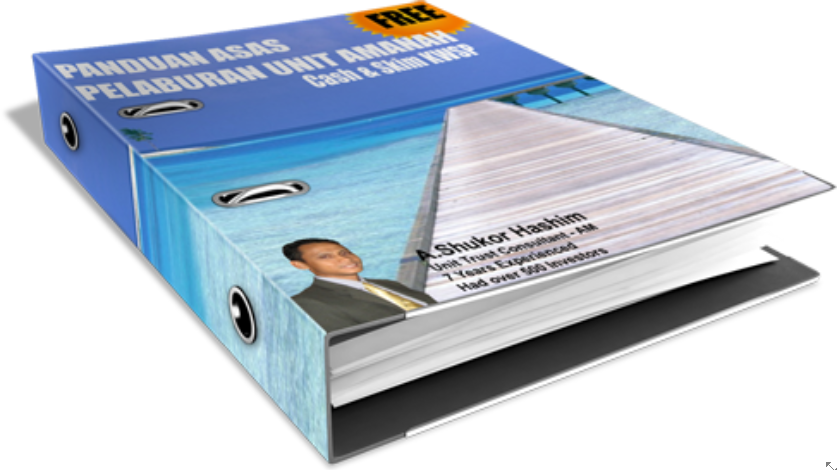
PrerequisitesInvesting is the secret to wealth. It
multiplies your money geometrically. But before
you start investing you need to make sure you've
taken care of two things: debt and potential
emergencies. Many people begin investing while
still paying bad debts. This is usually a serious
mistake, as the cost of carrying high interest debt
is almost always more than gains from investing.
You should pay off bad debts before investing. The other thing you should do before investing is prepare as best you can for emergencies. You should buy good health, auto, and home insurance (assuming you have a car and home) to avoid losing all your savings and going into debt in the event of an unforeseen illness, accident, or disaster. In addition to insurance, you should save enough money for you to live on for at least 6 months in case you lose your job and need time to find another.
multiplies your money geometrically. But before
you start investing you need to make sure you've
taken care of two things: debt and potential
emergencies. Many people begin investing while
still paying bad debts. This is usually a serious
mistake, as the cost of carrying high interest debt
is almost always more than gains from investing.
You should pay off bad debts before investing. The other thing you should do before investing is prepare as best you can for emergencies. You should buy good health, auto, and home insurance (assuming you have a car and home) to avoid losing all your savings and going into debt in the event of an unforeseen illness, accident, or disaster. In addition to insurance, you should save enough money for you to live on for at least 6 months in case you lose your job and need time to find another.
PlanningIn order to achieve your investment goals, you need to have a plan that you stick to. You should decide to either invest a fixed percentage of your income each year, or the amount above what you've determined you need to live on. A family that has an after tax income of $30,000 is not going to be able to invest as large a percentage as a family with an after tax income of $200,000. Therefore there is no absolute fixed percentage for every family. Some may only be able to afford 10%, and others may be able to afford 70% or more. Regardless of the percentage you decide on, make sure to put it aside every month.
The other option that makes sense for those with increasing incomes is to decide upon a certain amount of money needed to live on, and then invest the rest. If you're making $100,000/year and living happily on only $60,000, you can chose to only leave $60,000 available for spending in the coming years. If your income goes up to $300,000, rather than spend more, you'll be investing even more.
How and Where to InvestDiversityThe key to smart investing is diversity. You never want all your eggs in one basket. If all of your money is in stocks and the stock market takes a dive, you're going down too. If all of your money is in commodities and they crash, you'll crash too. But by investing in diverse asset classes from CDs, treasuries, and bonds to US and international funds, commodities, and real estate funds, you'll reduce your risk substantially. You should also consider investing in index funds rather than attempting to bet on winners or time the market. With index funds you'll be far more likely to make more money.
Asset AllocationWhen you're young, you can afford to have a greater percentage of your money in higher risk/higher yield investments such as stocks. As you get closer to retirement and are less willing to accept short term losses, you should have a much higher percentage of your money in no-risk or low-risk investments such as CDs and government treasuries. Many investment advisors use this rule of thumb: subtract your age from 100 to determine what percentage of your investments should be in higher risk assets. So if you're 40 years old you'd put 60% of your investments in relatively risky assets like stocks, commodities, and real estate funds. If you're 55, you'd put only 45% of your investments in such assets. You might consider this rule of thumb, but what's more important is that you feel comfortable with whatever allocation you chose. (See our article on Expecting Black Swans for another perspective on risk.) Regardless of your risk/stability ratio, you should be well diversified in both sections of your portfolio.
RebalancingRebalancing should also be an important part of your investment strategy. Over time, your asset allocation will shift due to some investments gaining or losing more than others. In one year for example, your investments in commodities may gain value and your investments in stocks may lose value. When you rebalance, you would take the gains from your commodity investments and add them to your stock investments to make up for the losses, returning to your original allocation. Rebalancing your portfolio not only ensures you don't end up with too much risk, but also forces you to "buy low and sell high".
Buying InKnowing which investments to choose can be tricky, especially due to misleading advertising and conflicts of interest. But the good news is that smart investing isn't that complicated. Once you've come up with your own diversified asset allocation breakdown, you can select index funds from most investment companies with very minimal fees (less than having someone manage your money for you). If you're not comfortable doing this on your own or you don't trust yourself to rebalance your portfolio when necessary, you may be better off choosing an investment company or financial advisor to help you.
The other option that makes sense for those with increasing incomes is to decide upon a certain amount of money needed to live on, and then invest the rest. If you're making $100,000/year and living happily on only $60,000, you can chose to only leave $60,000 available for spending in the coming years. If your income goes up to $300,000, rather than spend more, you'll be investing even more.
How and Where to InvestDiversityThe key to smart investing is diversity. You never want all your eggs in one basket. If all of your money is in stocks and the stock market takes a dive, you're going down too. If all of your money is in commodities and they crash, you'll crash too. But by investing in diverse asset classes from CDs, treasuries, and bonds to US and international funds, commodities, and real estate funds, you'll reduce your risk substantially. You should also consider investing in index funds rather than attempting to bet on winners or time the market. With index funds you'll be far more likely to make more money.
Asset AllocationWhen you're young, you can afford to have a greater percentage of your money in higher risk/higher yield investments such as stocks. As you get closer to retirement and are less willing to accept short term losses, you should have a much higher percentage of your money in no-risk or low-risk investments such as CDs and government treasuries. Many investment advisors use this rule of thumb: subtract your age from 100 to determine what percentage of your investments should be in higher risk assets. So if you're 40 years old you'd put 60% of your investments in relatively risky assets like stocks, commodities, and real estate funds. If you're 55, you'd put only 45% of your investments in such assets. You might consider this rule of thumb, but what's more important is that you feel comfortable with whatever allocation you chose. (See our article on Expecting Black Swans for another perspective on risk.) Regardless of your risk/stability ratio, you should be well diversified in both sections of your portfolio.
RebalancingRebalancing should also be an important part of your investment strategy. Over time, your asset allocation will shift due to some investments gaining or losing more than others. In one year for example, your investments in commodities may gain value and your investments in stocks may lose value. When you rebalance, you would take the gains from your commodity investments and add them to your stock investments to make up for the losses, returning to your original allocation. Rebalancing your portfolio not only ensures you don't end up with too much risk, but also forces you to "buy low and sell high".
Buying InKnowing which investments to choose can be tricky, especially due to misleading advertising and conflicts of interest. But the good news is that smart investing isn't that complicated. Once you've come up with your own diversified asset allocation breakdown, you can select index funds from most investment companies with very minimal fees (less than having someone manage your money for you). If you're not comfortable doing this on your own or you don't trust yourself to rebalance your portfolio when necessary, you may be better off choosing an investment company or financial advisor to help you.




 RSS Feed
RSS Feed

